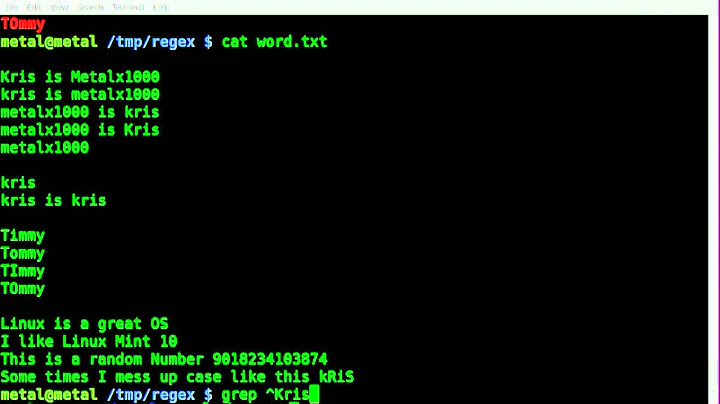Use of quotes in GNU grep regular expressions
The quotes are expanded by the shell, they determine what grep sees.
With grep -E '\<H', the characters between the single quotes are passed literally, so grep sees the regex \<H containing the beginning-of-word anchor \<.
With grep -E \<H, the backslash character removes the special meaning of < in the shell, and grep sees the regex <H. You would see matches for a line like <Hello>.
With grep -E <H, the < character would have its special meaning in the shell as a redirection character, so grep would receive the contents of the file called H on its standard input.
With grep 'd$' or grep d\$, the dollar sign is quoted so it reaches grep: the regex is d$, matching a d at the end of a line.
With grep d$ test, the $ sign is not followed by a valid variable name or by valid punctuation (${, $(). When that happens, the shell passes the $ sign literally, so grep again sees the regex d$. $ is only expanded when it is followed by a valid variable name (even if the variable is undefined — what matters is that a name follows, as in $PATH or $fioejsfoeij or single-character variables such as $- or $$), or in the constructs ${…}, $(…), $((…)) (also $[…] in bash and zsh, and more constructs in zsh).
The complete rules for shell expansion are far too complex to describe in a post or a dozen. In practice it's enough to remember the usual cases:
\(backslash) quotes the next character unless it's a newline, and the backslash is always stripped;'…'(single quotes) quotes every character except'itself;"…"(double quotes) quote every character except"$\`, and\inside double quotes causes the following character to be interpreted literally and is only stripped if the next character was special.
Related videos on Youtube
user3539
Updated on September 18, 2022Comments
-
user3539 over 1 year
I could see that certain patterns in the GNU Grep can be enclosed within brackets and certain others need not be. For example, matching the beginning of a word works only if it is enclosed within quotes.
user@host:~/Desktop$ grep -E '\<H' test Hello World user@host:~/Desktop$ grep -E \<H test[test contains the string Hello World]
But matching end and beginning of file works without dollar:
user@host:~/Desktop$ egrep d$ test Hello WorldWhy is it so? And what is the rule?
-
vonbrand about 11 yearsAlso can have some extra fun with
\\\<H...
![Regular Expressions With GNU grep in the Terminal - Part 01 [Learn by Practicing]](https://i.ytimg.com/vi/LIVBktatfQI/hq720.jpg?sqp=-oaymwEcCNAFEJQDSFXyq4qpAw4IARUAAIhCGAFwAcABBg==&rs=AOn4CLDXdGZIXe8K1u1EKz1RlPal1E5Fjw)



